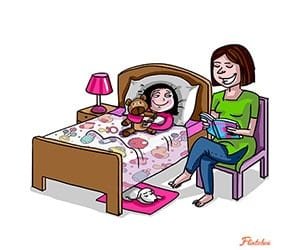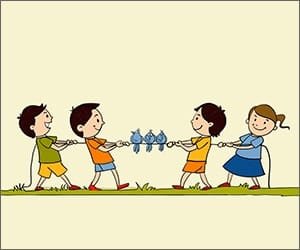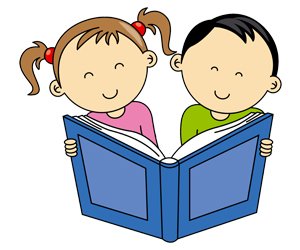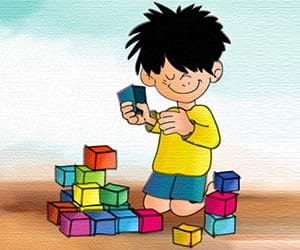
Is my toddler speaking enough?
During toddlerhood, language is a major stepping stone of development towards optimal growth.
As parents, we may tend to compare the speech of their own child with other toddlers to understand the development.
However, that is not the right metric to assess the pace and growth of any child.
Instead, we must focus on their ability to express their ideas and concerns to understand their language development.
How language develops in kids
Multiple factors influence the ability to communicate and express effectively in the early years.
Early childhood experts have stated certain expectations in regards to language abilities to ensure normative development of a child between the ages of 2-3 years.
Language is a system of communication through various forms such as gestures, speech, and writing.
Language development in early childhood is the ability to understand what is said to them as well as express their concerns and needs.
RELATED: Writing in early childhood: Understanding grip & how to introduce writing to your child
Language development in toddlers
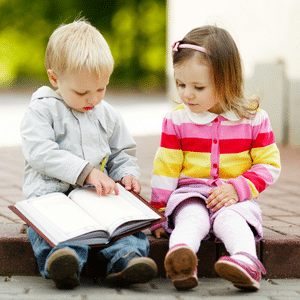
- Toddlerhood is the prime time when children progress from gestures and actions to using 2-3 words and small sentences.
- Your child will be able to name familiar objects, people, and basic emotions. They can answer what and where questions related to their routines and familiar experiences.
- They start using more verbs in their speech. Eg: Read the book, eat the rice, play in the park.
- They can follow instructions in familiar situations. Your child can clean up the toys, keep the plate after food, and bring a book from the table.
- As your child nears 3 years of age, they can narrate stories and talk about situations from the past and future using comprehensible sentences. They can talk about the day in school or a play date at the park.
- As parents, when you engage in a dialogue with your child, their ability to have conversations is also enhanced. They learn to wait for their turn and speak.
- They understand way more than they can say. A toddler’s ability to sense tones and non-verbal cues allows them to gauge the emotions of people around them.
- Typically, a toddler can produce more than 300-500 words. Vocabulary can vary from child to child based on their exposure and immediate environment.
In the initial stage, parents/adults work together to create conditions that foster word learning.
As time goes on, children learn words in an ongoing conversation, and when they overhear others using new words.
5 Ways to promote language development in young children
1) Conversing everyday
Keep your child an active participant by having interactive conversations.
They are keen to pick up novel words and start using them in similar situations.
Encourage your child to use descriptive speech. Let them talk and rephrase, add or ask probing questions to keep the conversation going.
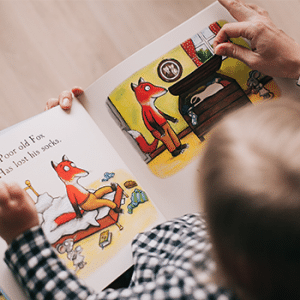
2) Reading storybooks
There is enough evidence that suggests the benefits of reading to a child at an early age.
Introducing your child to book reading from the early years expands their vocabulary and strengthens their cognitive skills.
3) Singing aloud
Singing rhymes, songs, and jokes are fun ways of introducing new words to your child.
4) Role play
Symbolic play is also critical in language development as it allows your child to imagine and freely express.
5) Active listening
It is also important to listen and pay attention when they talk. This helps them understand that words can fulfil their needs — which in turn develops self-regulatory behaviour.
Language no bar
Many children across the globe speak more than one language. They might speak English along with another native language.
Initially, bilingual children might mix up words and switch between languages while speaking, however as they grow, bilingual children surpass the skills of monolinguistic children.
Hence, don’t be worried if your child mixes up words. Teaching your child more than one language will only give them the edge!
After all, learning a language involves cognitive skills.
Research suggests that when children are initially taught in their native tongue, their learning is better.
Gradually, as they learn English along with other subjects in their native language, they are more likely to master academic content and literacy skills in both languages (Farver, Lonigan, & Eppe, 2009).
Some children respond using only one language initially or use gestures to acknowledge your instructions which are considered a normal progression to language development.
Early intervention for language development
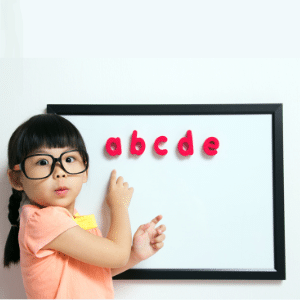
Between 2 – 2.5 years of age, most children use single words to express their needs.
Early intervention is necessary if you observe that your child is not responding to any of your instructions — either through verbal or non-verbal gestures.
Also if your child prefers not to play with peers or be amidst people.
Some of the signs that indicate the need for interventions are when they are unable to follow simple directions that are a part of their daily routine.
Children with a delay in language development may have poor self-regulation and social skills.
They may not be able to comprehend your instructions and often appear lost.
A speech and occupational therapist can help in the assessment of any delay and improve the child’s speech and language abilities.
Conclusion: Language learning begins at home
If your child has a certain routine and is cheerful around people and if they can respond to your instructions using gestures, you can engage in conversations to enable their ability to use words to converse.
You can also introduce picture-word books and encourage them to repeat after you.
A game of ‘I Spy’ at home also helps in naming familiar objects to provide the necessary stimulation for your child to use words.
Include book reading as a part of regular playtime and spend dedicated hours just conversing with your child.
What are other ways to boost a child’s language development? Comment below and share your thoughts!



